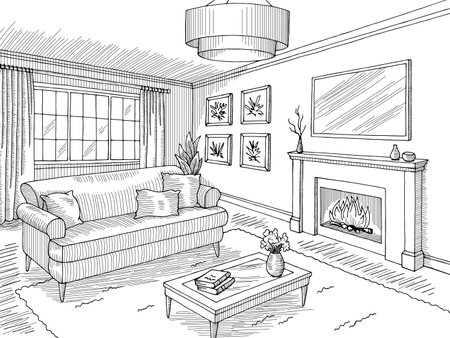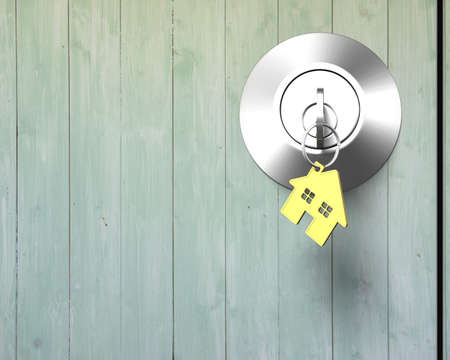Introduction: Bringing Feng Shui into the British Home
Feng Shui, the ancient Chinese art of arranging living spaces to promote balance and positive energy, has gained increasing interest among homeowners across the globe. In Britain, with its distinctive architectural heritage—from Victorian terraces to modern flats—there is both a challenge and an opportunity in adapting these time-honoured principles. At its heart, Feng Shui is about creating harmony between individuals and their environment. But how can these Eastern ideas be thoughtfully integrated within the context of a British home? By understanding the basics of Feng Shui and considering the unique features of British interiors—such as bay windows, fireplaces, and period features—we can develop decluttering strategies that not only respect tradition but also enhance comfort and wellbeing. This article explores how intentional decluttering, guided by Feng Shui philosophy, can be tailored to suit the character and charm of British homes.
2. Understanding the Purposeful Declutter
Clutter is more than just a minor annoyance in British homes—it can be a persistent challenge shaped by lifestyle, culture, and architecture. Many UK households, especially in older terraced or semi-detached properties, contend with limited storage space and inherited possessions. This often leads to rooms that feel cramped rather than comforting. Addressing this reality requires us to go beyond simply “tidying up” and instead focus on meaningful, intentional decluttering as inspired by Feng Shui principles.
Examining Clutter in the UK Context
British homes often combine tradition with modern living, leading to a diverse collection of items: family heirlooms, books, sporting equipment, and seasonal clothing. When left unchecked, these belongings can accumulate and disrupt the natural energy flow within the home—something Feng Shui identifies as an obstacle to tranquillity and wellbeing.
| Common Sources of Clutter | Impact on Home Environment |
|---|---|
| Inherited furniture & keepsakes | Takes up valuable space; emotional attachment makes removal difficult |
| Paperwork & mail | Creates visual noise; hampers organisation |
| Seasonal or rarely used items | Consumes cupboards/lofts; limits accessibility for daily needs |
The Importance of Intentional Decluttering
Intentional decluttering goes beyond aesthetics. It asks us to question the purpose each item serves and whether it contributes positively to our lives and spaces. In the context of British homes, this means balancing sentimentality with practicality—deciding what genuinely supports our day-to-day routines while respecting cherished memories.
Benefits of Purposeful Decluttering for British Living Spaces
- Creates room for calm and relaxation amid busy urban or suburban life
- Makes maintenance easier in compact or period properties
- Supports better energy flow according to Feng Shui, enhancing comfort and harmony
By examining why we keep certain objects and making mindful choices about what remains, British homeowners can transform their environments into calming, functional sanctuaries that reflect both heritage and intention.

3. Adapting Feng Shui to British Architecture
When applying Feng Shui principles in the UK, it’s essential to respect the unique architectural heritage and spatial realities of British homes. Unlike the sprawling layouts seen in some cultures, British properties often feature compact rooms, irregular shapes, and distinctive historical features. Understanding how to adapt Feng Shui guidance to these settings is a practical step towards meaningful decluttering and balanced living.
Victorian Terraces: Maximising Flow in Narrow Spaces
Victorian terraces are a staple across many British cities and towns. Their narrow hallways, high ceilings, and multiple small rooms present both opportunities and challenges. To foster good energy flow—or chi—focus on keeping entrance halls clear of shoes, coats, and post. Use mirrors thoughtfully to expand perceived space but avoid placing them directly opposite doors, as this can bounce positive energy back out. In living areas, arrange furniture to encourage conversation and movement rather than blocking pathways with bulky pieces.
Edwardian and Georgian Homes: Respecting Period Features
Older British homes often come with decorative fireplaces, bay windows, and alcoves. Rather than stripping away these features during decluttering, highlight them by keeping mantelpieces tidy and using alcoves for concealed storage. Opt for soft lighting that complements traditional sash windows, creating a warm atmosphere without overcrowding spaces with modern clutter.
Modern Flats: Making the Most of Compact Living
Contemporary flats—especially in urban centres—are typically open plan but limited on square footage. Here, multi-functional furniture is key: invest in ottomans with storage or wall-mounted shelving to keep surfaces clear. In accordance with Feng Shui guidelines, delineate sleeping areas from workspaces using screens or plants, promoting restful sleep and focused productivity even within one room. Ensure windows remain unobstructed to maximise natural light—vital for uplifting energy in smaller homes.
Tackling Common Spatial Challenges
British homes frequently contend with awkward corners, under-stair cupboards, or oddly placed radiators. Instead of letting these become dumping grounds for miscellaneous items, assign each area a clear function—transform an under-stair space into an organised shoe rack or compact reading nook. This deliberate approach supports intentional living while making the best use of every available inch.
Practical Tip: Celebrate Character While Clearing Clutter
The charm of British architecture lies in its diversity—from red brick terraces to glass-fronted flats. When tailoring Feng Shui strategies, honour this character by choosing storage solutions that blend seamlessly with original features. By doing so, you create harmonious interiors that feel authentically British yet energetically fresh—a true balance between old and new.
4. Room-by-Room Feng Shui Decluttering Tips
The Lounge: Creating a Welcoming Heart
The British lounge is often the hub for socialising and relaxation. To encourage harmonious energy flow, start by removing excess ornaments and magazines from coffee tables and mantels. Retain only items that spark joy or have family significance—perhaps a cherished teapot or framed photograph. Arrange seating in a way that invites conversation, avoiding placing chairs with their backs to the door. Soft throws and cushions in earth tones can balance the space, while keeping walkways clear ensures Chi moves freely.
Bedroom: A Sanctuary for Rest
Your bedroom should be a restful retreat. Begin by clearing out under-bed storage—a common British habit due to limited space. Keep only seasonal duvets or linens neatly stored in closed containers. Avoid cluttering bedside tables with books or electronics; instead, place a single lamp and perhaps a calming object like a lavender sachet. Position your bed away from direct alignment with the door (the “coffin position” in Feng Shui) and use blackout curtains for quality sleep, echoing the UK’s preference for darkness during long summer evenings.
Kitchen: The Hearth of Nourishment
The kitchen is central to family life but easily accumulates clutter. Recycle outdated tins and clear worktops of unused appliances—storing the kettle and toaster when not in use can make even a compact British kitchen feel spacious. Organise cupboards by grouping similar items together, using baskets or labelled jars for tea bags, spices, or biscuits. Ensure knives are stored out of sight to reduce negative energy and keep the windowsill tidy—perhaps with a fresh herb pot or classic daffodils for positive energy.
Hallway: Inviting Good Fortune In
The hallway sets the tone for your home’s energy. Remove shoe piles and coats from sight; install hooks or a classic boot rack to maintain order. Use a slim console table with a small dish for keys and post, keeping surfaces uncluttered. A well-placed mirror can expand light but avoid facing it directly at the front door to prevent positive energy from bouncing straight out again—a tip rooted in both Feng Shui and British superstition about mirrors.
Quick Reference Table: Key Decluttering Actions by Room
| Room | Main Clutter Points | Feng Shui Tip | Cultural Example |
|---|---|---|---|
| Lounge | Ornaments, magazines, crowded seating | Keep surfaces clear; arrange seating for conversation | Display favourite Royal memorabilia sparingly |
| Bedroom | Under-bed storage, bedside clutter | Avoid storing too much under bed; limit bedside items | Use floral bedding patterns popular in British homes |
| Kitchen | Worktop gadgets, mismatched crockery | Store away unused appliances; group items logically | Labelled tea caddies and biscuit tins add charm and order |
| Hallway | Shoes, post, coats on chairs or banisters | Install storage solutions; keep entryway bright and open | Slim umbrella stands suit narrow Victorian hallways |
By approaching each room with intention and sensitivity to both Feng Shui principles and British lifestyle habits, you create not just tidier spaces—but homes that truly nurture those who live within them.
5. Mindful Disposal and Sustainable Practices
When decluttering with intention in British homes, the process does not end with simply removing items from your space. A core aspect of Feng Shui is respecting both the environment and community, which aligns well with British values of sustainability and neighbourliness. Rather than discarding unwanted possessions thoughtlessly, consider culturally sensitive methods that honour the local ethos.
Embracing Charity Shops
Britain’s high streets are renowned for their charity shops, which serve as pillars of community support and environmental responsibility. Donating gently used clothing, books, and household items to these organisations extends the lifecycle of goods while supporting charitable causes. As you sort through your belongings, set aside items that are clean and in good repair for donation. Not only does this prevent unnecessary waste, but it also fosters a sense of goodwill—a key principle in both Feng Shui and British culture.
Recycling Responsibly
For items that are no longer fit for reuse, take advantage of the UK’s robust recycling infrastructure. Local councils often provide clear guidelines on recycling paper, glass, electronics, and more. By separating recyclables from general rubbish, you minimise landfill contributions and promote a healthier flow of energy within your home and community. Be mindful to check whether items can be repurposed or upcycled before disposal; sometimes a little creativity can breathe new life into an object.
Eco-Conscious Living: A Shared Value
The British commitment to eco-conscious living is well established—many households already practise composting food scraps and reducing single-use plastics. Integrate these habits into your decluttering process by using reusable bags when donating or recycling items and choosing biodegradable packing materials if posting donations. Every small step contributes to a larger culture of sustainability, ensuring your home remains harmonious with both Feng Shui principles and the broader environmental goals cherished across the UK.
6. Fostering Lasting Habits for a Harmonious Home
Creating a harmonious British home through intentional decluttering is not a one-off project but a continual process. Embedding lasting habits and cultivating a mindful mindset are crucial for sustaining both the clarity and balance achieved through Feng Shui-inspired strategies. By integrating ongoing routines, we ensure our living spaces remain supportive, welcoming, and full of positive energy.
Building Sustainable Routines
Begin by weaving small, manageable rituals into daily life—just as the British tradition of tidying up before tea or a weekend clear-out can anchor larger goals. Set aside ten minutes each evening to restore order to communal spaces, or designate a Sunday afternoon every month for deeper decluttering. Consistency, rather than intensity, is key: even modest efforts accumulate to make a meaningful difference over time.
Mindfulness in Everyday Actions
Feng Shui encourages us to act with intention, so approach each task—whether it’s sorting post on the hallway console or deciding which books remain on your shelves—with awareness. Pause to appreciate the items you keep and acknowledge their purpose within your home. This mindful approach helps prevent accumulation of unnecessary belongings and nurtures gratitude for what you already have.
Tapping into British Lifestyles
The British home often values heritage and sentimental objects; the challenge lies in balancing cherished heirlooms with open space and flow. Consider regular reviews of keepsakes, perhaps around spring cleaning or before Christmas decorating, to ensure each item still resonates with your current life. Share unwanted but usable goods through local charity shops—a practice deeply rooted in UK communities—so they find new value elsewhere.
Encouraging Family Involvement
Sustaining harmony benefits from collective effort. Engage family members by assigning age-appropriate decluttering tasks or creating friendly competitions—such as who can fill a donation bag fastest. Open discussions about why clutter accumulates and how letting go enhances everyone’s well-being supports an ongoing culture of care within the household.
A Balanced Mindset for the Long Term
Ultimately, maintaining a harmonious home is less about perfection and more about conscious choices. Allow space for flexibility—after all, British weather changes frequently, and so do our lives and needs. With regular routines grounded in Feng Shui philosophy and adapted for British lifestyles, your home will continue to be an uplifting sanctuary season after season.


